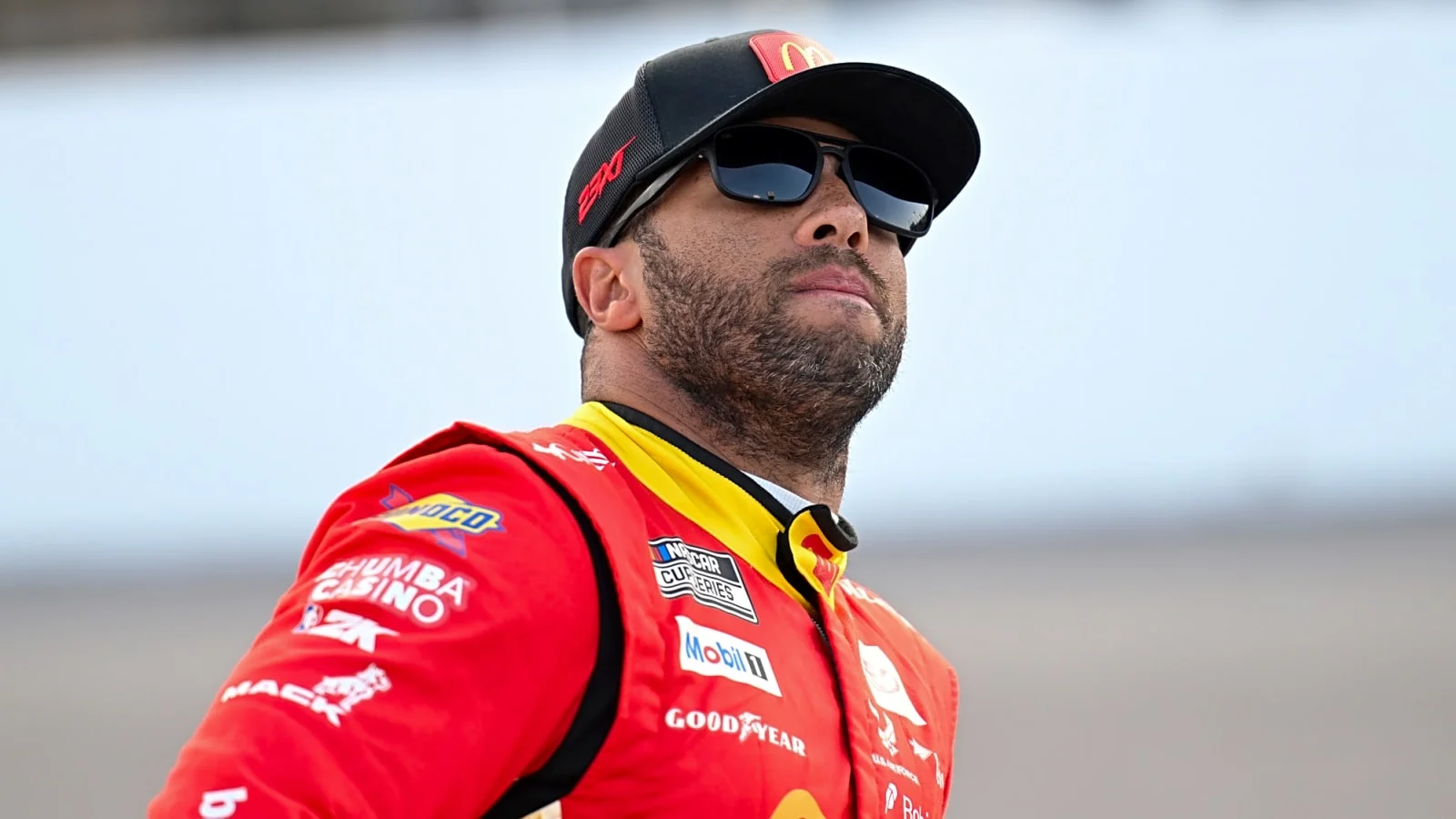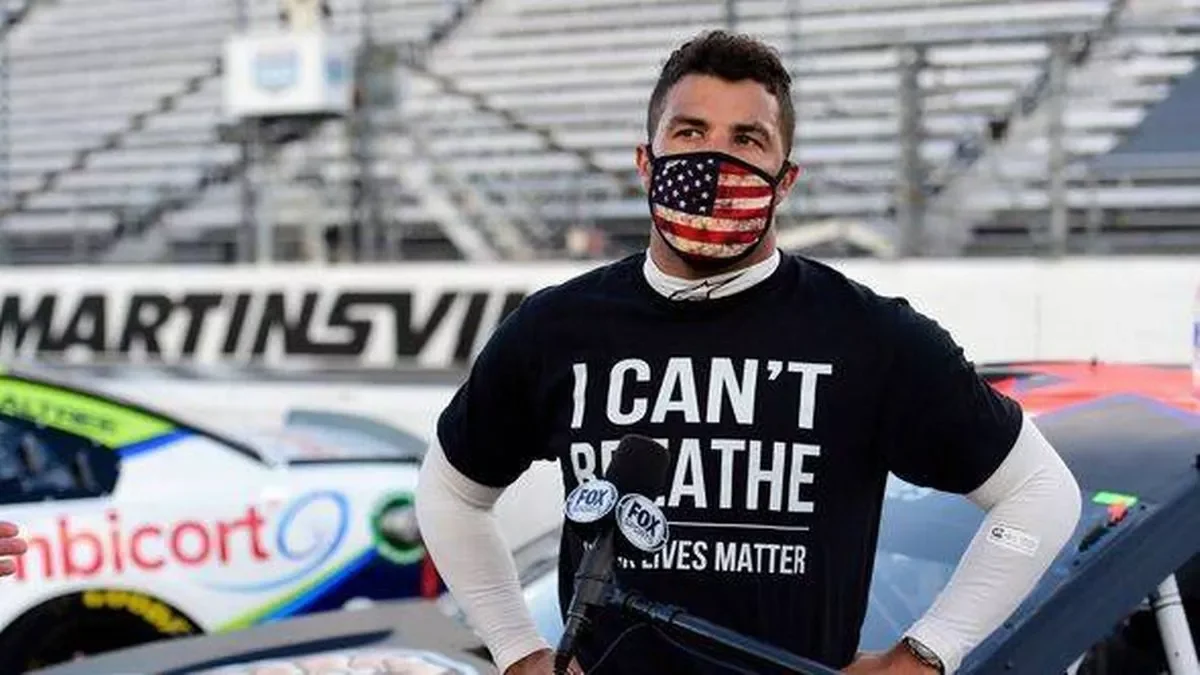The ongoing debate surrounding the NASCAR playoff system has reached new heights as prominent voices within the sport speak out against constant criticism from certain fans. Highlighting the issue of negativity, Bubba Wallace NASCAR criticism became a focal point as spotter Freddie Kraft, joined by Tommy Baldwin and Jeff Burton, addressed the controversy during a recent Door Bumper Clear podcast discussion.
Strong Opinions Emerge Amid Intensifying NASCAR Playoff Debates
Since the beginning of the 2025 NASCAR post-season, discussions about the sport’s format and future direction have grown increasingly heated among fans, drivers, and analysts. The community remains deeply divided, particularly over the merits and drawbacks of the current playoff and stage racing formats. These conversations often take place on public platforms, drawing in notable figures such as Hall of Fame nominee Jeff Burton, veteran NASCAR spotter Freddie Kraft, and seasoned team owner Tommy Baldwin, who recently gathered on the Door Bumper Clear podcast to discuss the swirling controversies.
During the conversation, Freddie Kraft, who has spent decades tracking every nuance of NASCAR from the spotter’s stand, made an impassioned plea regarding critics of the sport. Referring to observations made by Jeff Burton on what he described as the hypocritical nature of some fan comments, Kraft challenged the motives behind certain negative narratives. According to Kraft, some individuals within the fanbase seem invested in seeing NASCAR falter, choosing to criticize without offering constructive input.

You see people and it’s like they’re rooting for us to fail. I get on here and I get from NASCAR sometimes about being too critical or something. And I said, I love the sport. Like, I’m calling you out because I think what I’m saying is right. And I think this makes it better. Or I want it to be the best it can be. Like, we need to all figure out a way to lift it up, not just tear it down.
Freddie Kraft said via Door Bumper Clear podcast.
This emotional expression underscored the intensity of current debates, with Kraft making it clear that criticism, in his view, should serve to improve the sport, not undermine it. He called upon fellow fans and community members to look for solutions, rather than simply assigning blame or expressing discontent.
Calls for Responsibility and Constructive Feedback
Tommy Baldwin, known for his long tenure as a team owner and leader within the NASCAR garage, responded to Kraft’s comments by pointing out the human tendency to focus on the negative. During the same podcast appearance, Baldwin observed that many people find it easier to complain than to celebrate the positives of the sport. Jeff Burton, building on Baldwin’s insights, called for accountability among critics, stressing that anyone voicing objections should be prepared to explain and justify their viewpoints.
Tommy Baldwin: Because it’s easy for people to complain than to be positive.
Jeff Burton: If you have a complaint and don’t like something, you should say it. But you should explain why.
Tommy Baldwin and Jeff Burton responded.
The exchange captured how the trio—Kraft, Baldwin, and Burton—agreed that while criticism is an important part of ensuring NASCAR continues to evolve, it should be grounded in rational analysis and accompanied by real solutions. Their joint statements resonated with listeners, emphasizing that unchecked negativity provides little value in driving the sport forward.
Stage Racing Format Faces Divided Opinions
One of the most hotly debated issues in recent years has been the implementation and impact of stage racing. This system, designed to break up races into distinct segments, aims to increase competition and create more strategic opportunities for teams. During the podcast, Jeff Burton addressed what he considered to be contradictory opinions among critics opposing stage racing.
You’ll have a group of people that say, well, stage racing is just giving something for nothing. That makes no sense whatsoever. That point system says, the better you do during the race, the more points you’re going to earn. Stage racing (expletive). The same people that say stage racing sucks say they want a 36 regular.
Jeff Burton said.
Burton argued that stage racing rewards drivers for consistent performance throughout the event, aligning with long-term championship goals. He acknowledged that some fans express frustration that the outcome of an entire season or race should determine the championship winner, but emphasized that rewarding ongoing excellence rather than just the results from a single moment creates greater overall competition. Additionally, stage breaks and points distribution offer new commercial opportunities for sponsors, and provide teams with more chances to pursue different strategies.
Kraft, reflecting on these sentiments, highlighted that stage racing has created not only more competitive and entertaining events, but also a platform for sponsorship and fan engagement. Despite the repeated calls by some segments of the fandom to revert to a 36-race traditional championship without stages, Burton countered this perspective by pointing out the inconsistency in advocating for one form of consistency while rejecting another. According to Burton, critics need to clarify their concerns and describe what they truly want from the existing format.
Debate Continues Over Playoff and Points Systems
Beyond just the structure of races, the playoff and points systems themselves have drawn criticism from fans and participants who reminisce about older formats. However, the current system, which includes stage racing as a core component, has not only been credited with boosting engagement and sponsorship but also enhancing the drama and unpredictability of the championship chase. In the podcast discussion, the group debated why so many in the fanbase call for a return to legacy systems despite fundamental changes in the sport’s landscape.
So, think about this. We want how you do through the whole year to matter. But that same person will say they don’t want it to matter during the race. So, it gives two commercial breaks so you don’t miss anything. And it rewards the people for doing well during the freaking race. I don’t understand how you don’t think that’s a good thing. I don’t get it.
Jeff Burton added.
Burton’s remarks touched on the practical realities of modern sports entertainment, including broadcast schedules, advertiser needs, and the shifting expectations of audiences. He urged fans to acknowledge the evolution of NASCAR and to participate in dialogue that is focused on developing better solutions, not just clinging to nostalgia. Kraft and Baldwin echoed his perspective, reiterating the need for fans to channel their passion into productive engagement with the series.
Toward a More Constructive NASCAR Dialogue
While frustration and emotional investment among NASCAR’s large and divided fan base are inevitable, the recent podcast highlighted a collective desire within the sport’s leadership and key voices—such as Freddie Kraft, Jeff Burton, and Tommy Baldwin—for a more collaborative and forward-looking conversation. Bubba Wallace’s team, represented by Kraft, has repeatedly encouraged critics to specify their objections and put forward ideas for improvement, demonstrating the organization’s willingness to adapt and advance.
With the 2025 NASCAR post-season in full swing and race outcomes drawing even more attention, the coming months offer an opportunity for fans, teams, drivers, and officials to work together toward shaping the future direction of the sport. As the dialogue continues, the passionate pleas from both supporters and critics alike will play a role in driving innovation, ensuring that NASCAR remains competitive, entertaining, and responsive to all members of its enthusiastic community.
Fans who want no stages but a 36-race points format don't make sense to @JeffBurton… 🤨 @KarsynElledge3 | @FreddieKraft | @TBR7NY pic.twitter.com/IApniGbVpw
— Dirty Mo Media (@DirtyMoMedia) September 19, 2025
